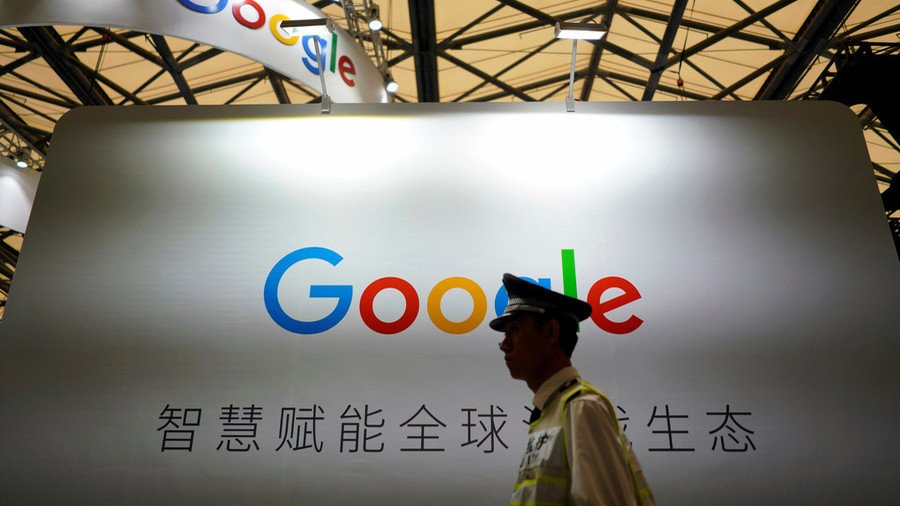Ex-Google CEO: Internet will split in two, with China controlling half

Former Google CEO Eric Schmidt predicts that the internet, as we know it, will split in two within the next decade, with one side led by China. However, Google seems okay with Chinese rule, once it gets to be involved.
“I think the most likely scenario now is not a splintering, but rather a bifurcation into a Chinese-led internet and a non-Chinese internet led by America,” Schmidt told tech-heads at a private event in San Francisco on Wednesday, organized by investment firm Village Global VC.
Schmidt warned that a Chinese-controlled internet would be subject to the Chinese government's censorship.
READ MORE: Google admits it lets hundreds of third party apps read your emails
“I think you're going to see fantastic leadership in products and services from China,” Schmidt fawned, before warning: “There's a real danger that along with those products and services comes a different leadership regime from government, with censorship, controls, etc.”
Whatever measures China decides to adopt at home, Beijing’s efforts to construct a 21st Century Silk Road could see these measures exported. The Belt and Road initiative, a move by Beijing to link around 60 countries in Europe, Africa, the Middle East and Asia with land, sea, and digital connections, could see countries adopt Chinese internet infrastructure.
“It's perfectly possible those countries will begin to take on the infrastructure that China has with some loss of freedom,” Schmidt predicted.
But is he worried about the impending death of the ‘open’ internet, or just bitter that the Chinese got there first?
The ex-CEO’s warning came hours before the Wall Street Journal revealed that Google employees discussed tweaking the company’s search functions to counter negative and ‘Islamophobic’ results for terms like ‘Islam,’ ‘Muslim,’ ‘Iran,’ etc, as a response to President Trump’s controversial travel ban last January. It didn’t happen, according to a Google spokeswoman, but the news adds further weight to the argument that Google, and other Silicon Valley tech giants, discriminate against conservative speech.
In addition, video emerged last week of an internal meeting, in which Google’s top officials discussed using AI to fight populism and correct “low information voters.”
Crossing the great firewall
While Google seems content to enforce left-coast liberalism at all costs at home, it apparently has no problem enforcing different ideologies abroad. Schmidt may have bemoaned a censored internet on Wednesday, but the internet giant is reportedly planning to launch a censored, Chinese-compliant version of its ubiquitous search engine in China.
The project, codenamed ‘Dragonfly,’ has been in the works for over a year, and will reportedly toe the Chinese government’s line in censoring information about free speech, political opponents, and books like George Orwell’s ‘1984’ which negatively portray authoritarian governments.
READ MORE: Trump’s new cyber strategy seeks global dominion over internet
It is unclear when, if at all, ‘Dragonfly’ will be launched. Chinese officials told Reuters that the project does not yet have approval from authorities, and the current trade spat between the US and China could put it on the back burner. American politicians and activists have slammed Google for the move.
Google pulled out of China in 2010, citing the Chinese government’s alleged human rights violations. Why then would the company, a supposed paragon of liberalism, return now?
With over 700 million internet users in China, Google’s new approach could be, quite simply, “if you can’t beat ‘em, join ‘em.”
Think your friends would be interested? Share this story!















